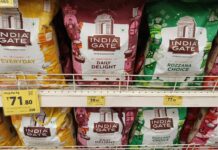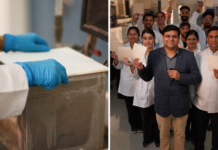The Indian metal packaging Industry claims that it is in deep trouble because the global tinplate and tin free steel suppliers are not interested in selling to Indian metal container manufacturers because of the standards set down by the Bureau of Indian Standards. The Metal Containers Manufacturers Association of India says the Rs 10,000 crore metal packaging industry in the country cannot source raw material because the domestic industry is unable or “not so equipped to fulfill the demand.”
The MCMA says there is a shortage of raw material used for packaging food and other products in metal containers, which has increased the price of this type of packaging. Tin containers are used mostly for packaging food, beer, milk products, and other items including personal care, while the tin-free material is used for caps, crowns and closures and components for sealing bottles and other containers. Following representations by the MCMA, the government earlier postponed implementing the order to 17 April 2021. Now the industry is seeking a further delay in implementing QCO till at least 31 March 2022.
The metal containers association says the industry is mostly dependent on importing tinplate and tin-free steel and is under tremendous pressure as there is a shortage of raw material, with prices recently escalating by more than 15%. It is asking that the 17 July 2020 – Steel and steel products Quality Control Order be postponed until sufficient quantities (about 700,000 tons annually) can be produced locally and in compliance with the order. Asserting that there is a demand-supply gap of 250,000 tons annually, the association has also suggested that apart from postponement for another year, the QCO should be withdrawn altogether.
The steel and steel products quality control order (QCO) of 17 July 2020 issued by the government’s Ministry of Steel mandates BIS Certification of inputs such as tinplate and tin-free steel. It imposes restrictions on the imports of steel easy-open ends, peel off ends, which the industry sources from overseas.
The association has also requested the Ministry of steel to allow the use of ISO certification materials in addition to BIS certified material. The MCMA asked the Ministry to enable the use of materials aligned to the ISO included in FSSAI’s order and recommended by the Ministry of micro, small and medium enterprises (MSME).
The MCMA believes that the QCO has been notified when the industry is already reeling under the pandemic. It is difficult to force international suppliers to go for BIS certifications. It says the procedure of BIS registration is unmanageable in the current situation.
IndiFoodBev — authentic, impactful and influential
An English-language food and beverage processing and packaging industry B2B platform in print and web, IndiFoodBev is in its third year of publication. It is said that the Indian food and beverage industries represent approximately US$ 900 billion in revenues which implies more than 20% of the country’s GDP. Eliminating the wastage on the farmside can help to deliver more protein to a higher number of the population apart from generating sizable exports. The savings in soil, seeds, water, fertilizer, energy and ultimately food and nutrition could be the most immense contribution that country is poised to make to the moderation of climate change.
To improve your marketing and grow sales to the food and beverage processing and packaging industry, talk to us. Our research and consulting company IppStar [www.ippstar.org] can assess your potential and addressable markets in light of the competition. We can discuss marketing, communication, and sales strategies for market entry and growth.
Suppliers and service providers with a strategy and budget for targeted marketing can discuss using our hybrid print, web, video, and social media channels to create brand recognition linked to market relevance. Our technical writers are ready to meet you and your customers for content.
The second largest producer of fruit and vegetables in the world is continuously expanding processing capacities and delivery systems with appropriate innovative technologies. We cover product and consumer trends, nutrition, processing, research, equipment and packaging from farm to thali. Get our 2025 media kit and recalibrate your role in this dynamic market. Enhance your visibility and relevance to existing markets and turn potential customers into conversations. Ask for a sample copy of our bi-monthly in print or our weekly IndiFoodBev eZine each Wednesday.
For editorial info@ippgroup.in — for advertisement ads1@ippgroup.in and for subscriptions subscription@ippgroup.in
Naresh Khanna – 10 February 2025
Subscribe Now











